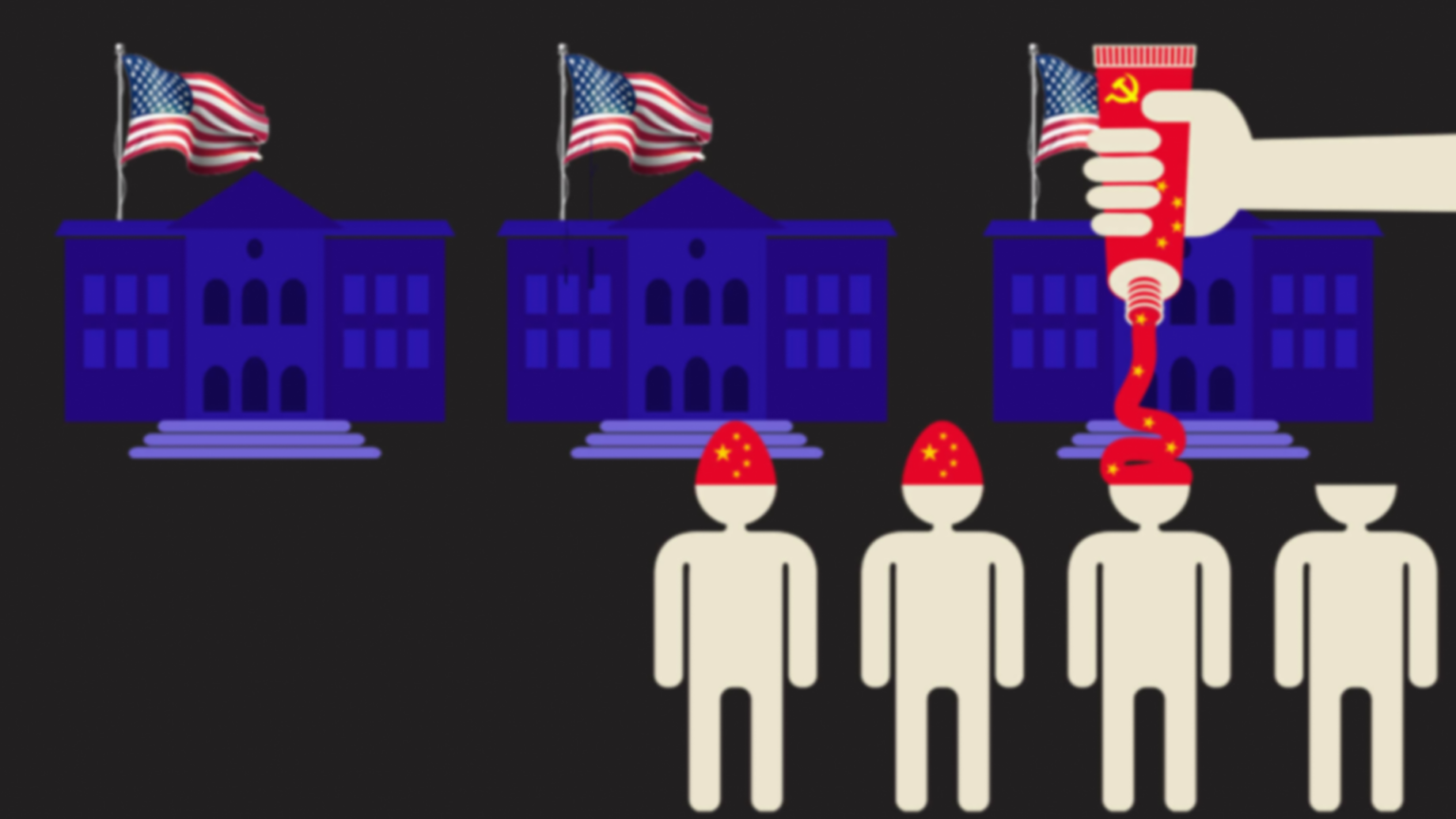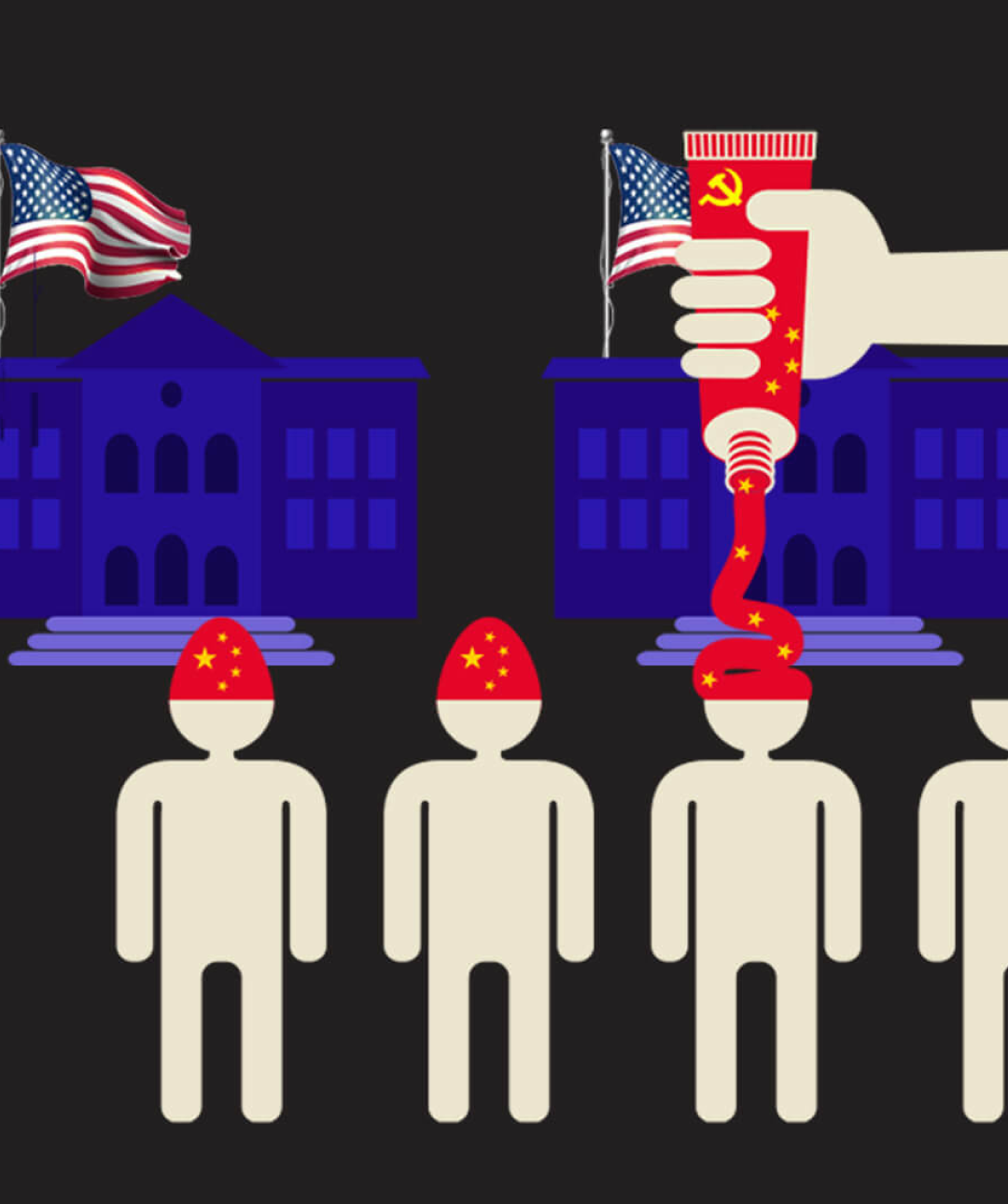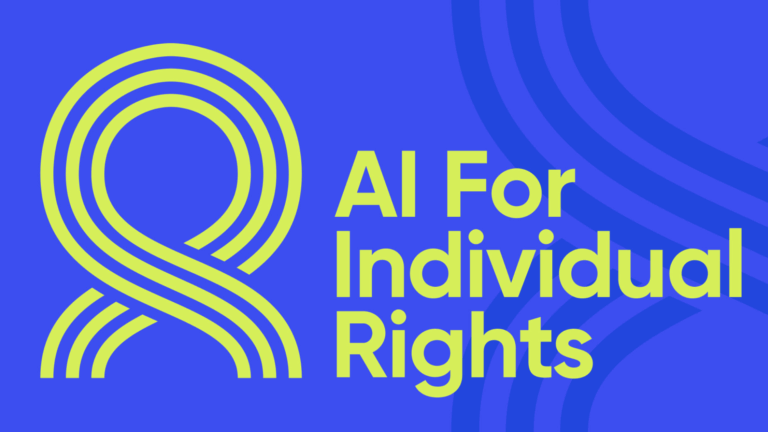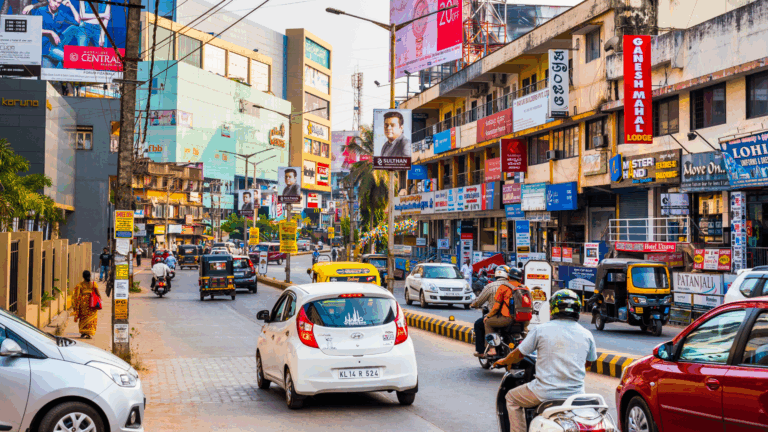As the Chinese Communist Party (CCP) enters its 100th year, it continues to actively spearhead extensive propaganda, censorship, and repression campaigns within and outside of China’s borders. These far-reaching tactics all serve one purpose: to advance the ideology of China’s authoritarian regime.
Introduction
July 2021 marked the centenary of the CCP. From the perspective of the party, it was a momentous anniversary to celebrate the achievements and milestones that it has achieved. However, from the perspective of activists and concerned global citizens, the date served as a stark reminder of 100 years of repression and human rights abuses that people have endured at the hands of the Chinese regime. Today, the Chinese government, with Xi Jinping at its helm, rules with an iron fist domestically and has aggressively expanded its authoritarian influence overseas.
The CCP’s global strategy encompasses many facets, such as interfering with international affairs via institutions such as the World Health Organization, weaponizing emerging technologies such as artificial intelligence, and capitalizing on its economic and political clout to demand ideological compliance. Alarmingly, the CCP has also infiltrated academic institutions abroad — including those in democracies such as the United States — as part of their efforts to shape international perceptions of China and its government for decades to come.
Political Regime Type
According to the Human Rights Foundation’s political regime analysis, China is a country ruled by a fully authoritarian regime that is headed by the CCP. With no separation of powers or independence of the judiciary, the one-party state routinely disregards fundamental human rights. Under Xi, the limited space for civil society has shrunk tremendously, and human rights abuses perpetrated by the Chinese government have intensified in an unprecedented manner. Under the guise of fostering unity and strengthening national security, the CCP and Xi have ramped up their propaganda, tightened information control, increased surveillance, and denied people their right to freely express opinions that do not fully align with the party’s ideology. As such, the Chinese government stands as one of the worst human rights violators of the world today.
The Chinese government’s authoritarian practices are aggressive, systematic, and reveal a strong and disturbing desire to firmly mold and shape the narrative toward safeguarding the party’s tight control. Domestically, it has deployed a robust propaganda machine, unmatched levels of intrusive monitoring and policing, and cutting edge surveillance technology to collect enormous amounts of information about each citizen in the hopes of creating a subservient, uniform society. Internationally, the CCP wields its heavy economic and political prowess to demand ideological compliance and disseminate its authoritarian practices across the globe. For example, by threatening expulsion from the Chinese market, the CCP has intimidated foreign companies to toe the party line and has pressured Hollywood to “tell China’s story well, and properly disseminate China’s voice.” By granting financial loans with strings attached to developing countries via Xi’s signature infrastructural project, the Belt and Road Initiative, the CCP has bought loyalty and dutiful support from governments who now willingly echo the party’s rhetoric and amplify the regime’s influence. Additionally, the CCP and Chinese companies have also exported their surveillance technology overseas, essentially replicating the country’s repressive monitoring practices to other countries and further threatening fundamental freedoms abroad.
The Chinese government’s multi-pronged global strategy of advancing their political ideals has not spared the realm of academia. Through spearheading Confucius Institutes (CIs), the CCP has heavily interfered with academic freedom in universities and classrooms across the world. The CCP’s strategy of infiltrating the education sector should be of no surprise, as they have been targeting education within their own borders as well. Their desire to instill political conformity via educational materials is evident in mainland China, Tibet, the Uyghur Region, and in Hong Kong. The Chinese government deeply understands the profound impact of education toward shaping the mindsets of future generations.
Understanding Confucius Institutes
Background
Confucius Institutes and classrooms operate in college and university campuses, and in K-12 schools globally. While marketed as educational programs and centers that fund Chinese language, history, and culture courses, CIs in reality are vehicles of the Chinese government’s propaganda schemes. They are contractually embedded in academic institutions globally, including in the United States, the United Kingdom, Australia, Italy, South Korea, Germany, Japan, France, and many other countries.
CIs are backed by the Office of Chinese Languages Council International, colloquially referred to as “Hanban” or “Confucius Institutes Headquarters,” which is funded by the Chinese government’s Ministry of Education. Notably, these institutions are also funded by the CCP’s Propaganda Department, an extension of the CCP’s “United Front Work Department” (UFWD), which is a government agency dedicated to influence operations and propaganda campaigns both domestically and abroad to advance the CCP’s goals. Since 2004, the Hanban has opened more than 100 CIs in the United States, and more than 500 globally. According to a report by the U.S.- China Economic and Security Review Commission, UFWD initiatives, including CIs, “serve to promote Beijing’s preferred global narrative, pressure individuals living in free and open societies to self-censor and avoid discussing issues unfavorable to the CCP, and harass or undermine groups critical of Beijing’s policies.”
Recently, there has been increased scrutiny about the CCP’s authoritarian influence through CIs and its threat to academic freedoms, citing examples of censorship around politically sensitive topics — such as the “three T’s” (Tiananmen, Tibet, and Taiwan) — and lack of full transparency surrounding CI contracts and operations. As a result, several universities and colleges have decided to terminate their existing CI contracts in order to mitigate their risks of being affiliated with these institutions. Subsequently, almost 50% of the CIs in the United States closed between 2017 and 2021. In 2020, amid mounting pressure, the Hanban changed its name to the “Centre for Language Education and Cooperation” and formed a new non-profit organization “Chinese International Education Foundation” as an attempt to publicly distance themselves from the Chinese government. However, despite the theatrics of its rebranding, both remain to be sponsored by the Chinese government’s Ministry of Education and thus, still grant the Chinese government oversight into the curriculum of CIs and access into classrooms around the world. The U.S. Department of State has since firmly declared that “Confucius Institutes are clearly sponsored by Beijing,” and have also designated the Confucius Institute U.S. Center — the de facto headquarters of CIs in the United States — as a “foreign mission” because of its intentionally malicious attempts to influence and manipulate curricula on U.S. campuses.
Curriculum and Content
CIs are housed in host schools or universities globally, where the Chinese government is able to dictate the curriculum of Chinese language, history, and culture courses and curate activities, including conferences, performances, workshops, and even educational trips to China, and other educational initiatives as long as they receive “authorization” or have “appointment of the Headquarters.” These privileges are detailed in the contracts signed by both the Hanban and the host. The agreements also lay out how the Hanban will fund CI’s salaries, textbooks, start-up costs, and other necessary operating funds, whereas the host will help provide the physical space for these activities and assist with visas where necessary. This generous financial support — starting from as low as $50,000 to upwards of $1.7 million, according to a 2019 U.S. Government Accountability Office report — has both lured and forced the administrations of host schools and universities to cave into the CCP’s ideological demands, to forego safeguarding academic freedoms, and to remain complicit in the Chinese government’s human rights abuses.
As such, CIs, and by extension, the Chinese government, have virtually free reign to heavily control teachers, courses, textbooks, and activities. In fact, host schools and universities are granted little oversight and have minimal understanding about the Hanban’s hiring and selection process. The nature of the Hanban’s highly-selective hiring process is biased and one-sided. Teachers must be thoroughly vetted by the Hanban and, most importantly, their political loyalty is strongly taken into consideration, as those who “have a strong sense of mission, glory, and responsibility” are prioritized. For example, the Hanban has barred practitioners of Falun Gong, a spiritual and religious movement viewed as a threat to the Chinese government, from becoming teachers at CIs, and has been reported to cherry-pick candidates that solely align with the CCP’s political and religious views — even prioritizing those who are members of the CCP themselves. Candidates have reportedly been questioned during their job interviews on their views concerning CIs. Unsurprisingly, teachers must be able to skillfully avoid answering questions that would criticize the Chinese regime, including its history of repression and human rights abuses. Some evidence points to how CIs have reportedly provided teachers with “stock answers to questions it wishes to avoid.” Should a student inquire about the political status of Taiwan or the human rights situation in Tibet, for example, teachers are expected to pivot the discussion toward focusing on Beijing’s approved narratives.
CI’s textbooks, course materials, activities, and other educational initiatives are equally censored. The Chinese government’s heavy-handed influence has allowed CIs to disseminate CCP rhetoric and silence dissenting viewpoints, with the intention to craft the future generations’ mindset about China to be one that is unapologetically supportive of the regime’s actions. History courses about China have been distorted to neglect important events, including the Cultural Revolution and the 1989 Tiananmen Square Massacre. More recently, any criticism about the Chinese government’s policies surrounding the Uyghur genocide or the undermining of freedoms in Hong Kong, for example, are silenced. The educational content of CIs mirror those found within classrooms of China, essentially erasing historical truths and whitewashing the Chinese government’s crimes. As a result, entire generations of American students are receiving a selective, Beijing-approved education about China, and are not being presented with the opportunity to freely and safely learn about the multi-faceted aspects of Chinese language, history, and culture. As a consequence, students do not have a space to fully develop their own opinions about China, Asia, and China’s relationship with the rest of the world.
In addition, according to a 2017 report by the National Association of Scholars, CI contracts include stipulations that all classes and personnel must “adhere to Chinese law.” Six out of the nine institutes that the report examined, for example, have contracts that expressly state that “the Confucius Institutes […] shall not contravene concerning the laws and regulations of China.” Furthermore, seven of the nine institutes have contracts that require them to comply with the Confucius Institute Constitution which underscores the importance of adhering to Chinese law. Neither the contracts nor the Hanban, however, offer guidance on what happens when Chinese law contradicts American law. As such, academic institutions in the United States that receive funding from the Hanban have found themselves compelled to adhere to Chinese law in order to placate China’s authoritarian government.
The resulting human rights implications are significant. By complying with Chinese law and steering away from political sensitivities at all costs, academic institutions are essentially abetting the Chinese government’s whitewashing campaigns and are complicit in undermining fundamental freedoms such as the freedom of expression, freedom of thought, and most importantly — the right to an education that promotes understanding and tolerance.
Human Rights Implications
As a result of the Chinese government’s interference, freedom of expression is at stake within CI classrooms, host universities, and schools. Both information censorship and self-censorship are especially prevalent, as educators, researchers, administrators, and students alike are steered away from learning and critically thinking about topics that may be deemed sensitive to the Chinese government such as democracy, “the three T’s,” Hong Kong, the Uyghur genocide, and the CCP’s other prevailing human rights infringements. This restrictive academic atmosphere has hindered the ability to conduct free, open, and balanced discussions about these subject matters, stunted academic freedom, and restricted students’ right to freedom of thought and expression.
Additionally, several faculty have expressed concern on how CIs have been able to “limit events or activities critical of China, including events at the Confucius Institute and elsewhere on campus.” As such, it is important to underscore that the CIs’ tight control on information impacts more than just textbooks and teachers. It has also reverberated across seminars, workshops, and events; there have been several documented instances where host universities and schools have retracted invitations, censored event materials, or cancelled guest speakers in order to placate the Chinese government’s desires. For example, in 2009, North Carolina University was pressured by their CI on campus to withdraw a speaking engagement invitation to the exiled Tibetan spiritual leader, the Dalai Lama, who is labelled as a “splittist” by the Chinese government. Another instance cited how, in 2018, the CI at the Savannah State University removed all references about Taiwan — an independent democratic country which China claims is a breakaway province — in a guest speaker’s biography in printed materials. In 2019, senior administrators cancelled guest speakers at two universities because they believed that the CCP would find the events to be “sensitive.” In one instance, the dean worried that the university would lose its growing number of students from China. In another, Victoria University cancelled a documentary screening that was critical of CIs.
Furthermore, many have reportedly willingly self-censored and modified their remarks both inside and outside classrooms out of fear of being denied funding or access to China. In turn, not only have CIs threatened fundamental freedoms, but they have also cultivated a climate of intimidation and surveillance within American classrooms. According to a 2017 report by the Wilson Center in Washington, DC, educators, students, and other faculty members with relatives still based in China have expressed how they have “become victims of monitoring, harassment or ostracism by other [Chinese] students after engaging in academic activities perceived as critical of China.” As a result, several students have shared that they have opted to self-censor or to not speak publicly in order to protect their loved ones in China, while others have voiced their excitement to have left China in order to exercise their freedoms, only to be disappointed and forced to be censored yet again in the United States due to the CCP’s overreach.
Widespread discrimination and marginalization of both students and educators on campus are also a result of having the eyes and ears of the Chinese government in American classrooms. By whitewashing human rights abuses and omitting historical facts from course curricula, CIs have created an academic environment that is suffocating and can be even threatening for students from Hong Kong, Tibet, and Taiwan, as well as for Uyghur Muslims and Falun Gong practitioners, and other fellow students who are outspoken against the CCP. CI’s intentional erasure and strict censorship marginalizes these students, simply because of their identities, beliefs, and opinions, leaving them in vulnerable positions with little or no support from school administrations.
Conclusion
The CCP’s propaganda, censorship, and repression campaigns know no borders. A former senior leader of the CCP has once publicly explicitly stated that CIs are an “important part of China’s overseas propaganda set-up.” The CCP’s clear intent to weaponize academic institutions to advance their political and ideological goals is truly alarming. Since the advent of CIs, they have silenced controversial and sensitive topics, spread unbalanced rhetoric, threatened fundamental freedoms, and intentionally incited fear and hostility among students and educators.
The international community is starting to awaken to the CI’s growing threat to democracy and academic freedoms within its own communities and academic institutions. It is imperative for American schools to firmly uphold academic integrity, and safeguard academic freedom by shuttering their respective CIs. This process is already slowly underway. Prominent universities such as Tufts University, Baruch University, and George Washington University have recently publicly announced the closure of their CIs. Outside of the United States, several schools in Japan, South Korea, Germany, and other countries have also started to conduct thorough re-evaluations of their relationships with CIs.
Despite this momentum, more must be done. American academic institutions must no longer aid and abet an authoritarian regime that silences free speech, crushes dissenting opinions, and tramples on human rights. As of July 2021, there are still more than a dozen CIs operating in host schools and universities across the United States, including:
- Alfred University in New York
- Medgar Evers College in New York
- New Jersey City University
- Presbyterian College in South Carolina
- Pacific Lutheran University in Washington
- San Diego Global Knowledge University in California
- Southern Utah University
- Stanford University in California
- SUNY Albany
- SUNY State College of Optometry
- Troy University in Alabama
- University of Akron in Ohio
- University of Central Arkansas
- University of Toledo in Ohio
- University of Utah
- Valparaiso University in Indiana
- Webster University in Missouri
- Wesleyan College in Georgia
- Xavier University of Louisiana
It is inconceivable for academic institutions within the United States to continue to turn a blind eye on the Chinese government’s interference and allow it to promote its propaganda and enforce its transnational repression in college and university campuses.
HRF calls on all universities with operating Confucius Institutes to close them immediately. The close re-examination and closures of CIs does not seek to discredit the importance of learning Chinese language, history, and culture. Rather, it aims to firmly uphold fundamental freedoms, academic integrity, and transparency — principles that academic institutions must remain committed to protecting. Host schools and universities should terminate their CI contracts, consider alternative funding sources, and explore diverse academic resources that are not tainted by the Chinese government’s authoritarian agenda. As the CCP celebrates its 100th anniversary, academic institutions, civil society, and policymakers alike must join forces to send a clear message to the Chinese government: your tactics of repression and propaganda are not welcome in our classrooms.
By Zoe Gladstone and Jenny Wang








